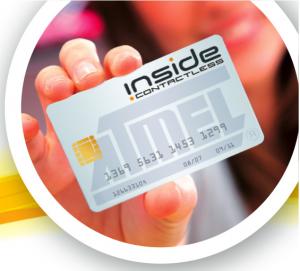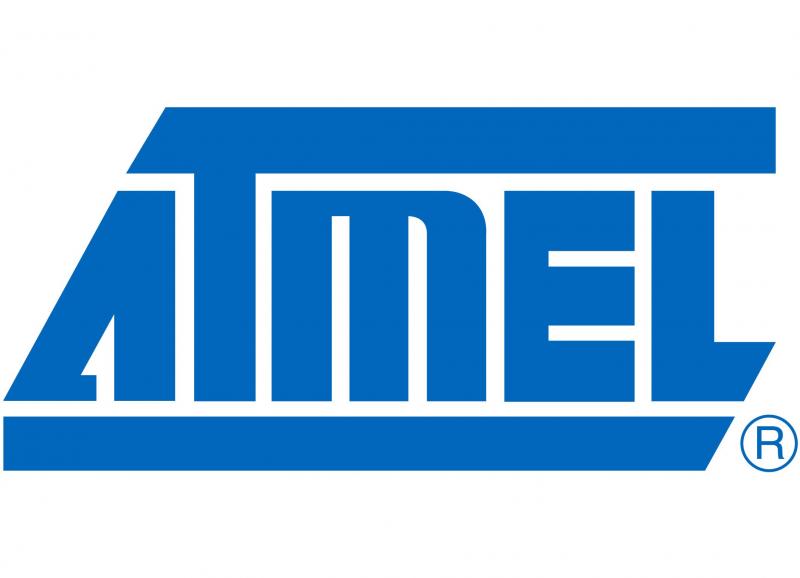Inside Confirms Agreement to Buy Atmel Chip Unit

Inside Contactless today announced it has agreed to purchase U.S.-based Atmel Corp.’s smart card chip unit for an undisclosed price–a move that is expected to triple Inside’s sales and give it much-needed technology to stay competitive with its larger European rivals.
The planned acquisition, which NFC Times first reported April 24, would give Inside more than 170 additional engineers, sales and marketing personnel and other staffers–more than doubling the company’s headcount–along with a wide-ranging product portfolio that complements Inside’s single-interface contactless chips and Near Field Communication chips, said CEO Rémy de Tonnac.
“It is very simple, Atmel has a product portfolio that has no overlap with our own product portfolio,” de Tonnac told NFC Times. “They have strong patents; security, crypto-processors. That is part of the deal.”
The companies are declining to reveal the purchase price Inside is paying for the larger Atmel secure microcontroller solutions unit. UPDATE: But Atmel later revealed Inside would pay $37 million cash at the closing of the deal and another $21 million if certain financial targets are met. END UPDATE. Inside has launched another funding round to cover the cash deal–raising the money from existing investors–led by Gimv and Sofinnova Partners. But Gimv has said it would invest 11.2 million euros for the funding round. Money would also come from at least two new investors, French sovereign wealth fund Fonds Stratégique d'Investissement, or FSI, and Atmel itself. State-funded FSI said it will invest 7.5 million euros (US$9.9 million).
The new round of funding follows three earlier rounds for Inside, which concluded in December 2008. Those rounds plus earlier capital totaled 83.6 million euros. Inside and Atmel expect the deal to close in the third quarter.
 “We are raising a lot of money not only for the acquisition, (but) to make sure we have room to keep investing,” de Tonnac told NFC Times. He declined to release the amount, however.
“We are raising a lot of money not only for the acquisition, (but) to make sure we have room to keep investing,” de Tonnac told NFC Times. He declined to release the amount, however.
The purchase would not include any manufacturing plant connected with the unit, which Atmel has recently agreed to sell, meaning Inside will remain a fabless chip supplier. Atmel has been trying to exit the smart card chip business for more than 18 months. De Tonnac said Inside was by no means the only company interested in the Atmel unit, describing the dealing for the unit as competitive. A source told NFC Times that among those vying with Inside at one point was rival NXP Semiconductors. As part of the deal, Inside has agreed to a multiyear contract to continue to buy wafers from the former Atmel plant in Rousset, which the chip maker recently agreed to sell to Germany-based LFoundry.
About 90% of the employees Inside will take on work in Rousset, France, and East Kilbride, UK, and de Tonnac said there were no plans for job cuts. Rousset is near Inside’s headquarters in Aix-en-Provence.
Inside had 35.8 million euros (US$50.5 million) in sales in 2008, the last year for which figures are available. UPDATE: Research firm Frost & Sullivan estimated sales in Atmel’s secure microcontroller solutions unit at just under $150 million in 2008. Atmel, though publicly traded, does not break out figures for the unit and is not releasing the price Inside is paying for it, at least not yet. At present, Atmel's smart card chip unit has about double the sales of Inside.
Sales in the smart card chip unit have been dropping substantially the past couple of years, especially from falling sales of Atmel SIM chips. The chip maker ranked sixth in unit shipments in 2008 with a 6.1% market share, according to research firm Frost & Sullivan.
 Atmel’s overall revenue was more than $1.5 billion in 2008, supplying microcontrollers and other chips for a range of uses, including consumer electronics, avionics, wireless devices and network base stations.
Atmel’s overall revenue was more than $1.5 billion in 2008, supplying microcontrollers and other chips for a range of uses, including consumer electronics, avionics, wireless devices and network base stations.
Needed Chip Designs
Among other things, the deal will give Inside designs for dual-interface chips for EMV banking cards it has been unable to develop on its own. That would enable it to compete with much larger rivals, such as Infineon Technologies of Germany and Netherlands-based NXP, for what de Tonnac predicts will be a booming market for contactless bank cards outside of the United States.
EMV cards require a contact interface enabling cardholders to insert their cards into terminals. But banks in such countries as the UK, France, Italy, Poland and parts of Asia are starting to add contactless functionality. De Tonnac estimated the dual-interface chip market at only 20 million to 25 million units in 2009.
“This one (market) is going to double every year for the next six or seven years, and the combination of Inside and Atmel is very powerful,” he told NFC Times.
The level of growth of the dual-interface market for bank cards is debatable, however, since contactless payment has yet to take off.
Still, observers see it as vital to Inside’s quest for profitability. The market for non-EMV contactless chips in the U.S.–which Inside dominates–is commodizing, and growth has slowed in recent years. That trend, combined with delays in demand for NFC chips for phones, has led to losses for Inside of 7.6 million euros (US$10.7 million) in 2008 and 10.1 million euros in 2007. De Tonnac, however, said Inside’s banking chip segment was profitable.
With Atmel, Inside also gets established customer contracts, including those with smart card makers supplying French banks with EMV cards. Smart card vendors working on Atmel chip platforms would be unlikely to change suppliers, which is an expensive proposition.
Card-Vendor Relations
Inside, however, has not exactly endeared itself to smart card vendors, since it provides its own operating system for its contactless chips in the U.S. That move up the value chain rubs the largest card vendors the wrong way–although they have been unable to break Inside’s hold on the U.S. contactless bank-card market with other chip suppliers, noted payments consultant Patrick Gauthier. He is a former Inside board member from his time as senior vice president of innovation for Visa International and led Visa’s investment in Inside in 2005, just as the U.S. contactless bank card market was gathering steam.
“The resistance they had from the dominant card vendors came from the fact that early on Inside, by necessity really, established a good relationship with the banks, which meant that the card vendors had less ability to define the platform,” Gauthier said. “Though, the very reason why Inside became dominant in the contactless payments is because of these relationships with the issuers, which meant Inside does deliver more value to the banks in the form of product design and support.”
Atmel, in fact, competed with Inside in the U.S. contactless chip market, supplying chips for cards or key fobs issued by JPMorgan Chase, Bank of America and Citigroup, though Inside pulled ahead in 2006, said a source.
While Atmel is no longer a major player in the SIM-chip market, it does have a design for chips for SIMs that support the standard single-wire protocol connection. That could be closely integrated with Inside’s SWP-compliant NFC chips, which might appeal to some mobile operators. The telcos want payment and ticketing applications to run on their SIMs in NFC phones, which enable them to collect more revenue from service providers. Still, the mobile operators would have to buy SIMs with chips from other chip suppliers that would not be as tightly integrated with Inside’s NFC chips.
Besides helping its payment and NFC chip offers, Inside said the purchase would also help it meet growing demand for chips for the contactless ID market.












